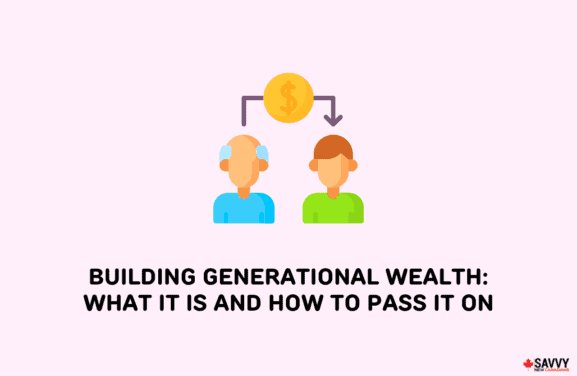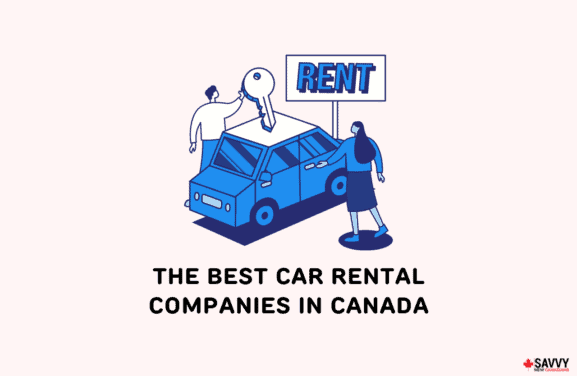The minimum wage in Canada varies by province. It ranges from $14.00 to $16.77, with each province setting their minimum wage.
As of October 1, 2023, the minimum wage in Newfoundland and Labrador is $15.00, with another scheduled increase for next April.
This guide covers everything you need to know about the minimum wage in Newfoundland and Labrador, including its history, exceptions and rules, tax rates, and scheduled increases.
Newfoundland and Labrador Minimum Wage History
The current minimum wage in Newfoundland and Labrador is $15.00 per hour. Below is a brief history of the minimum wage over time:
- October 1, 2023: $15.00
- April 1, 2023: $14.50
- October 1, 2022: $13.70
- April 1, 2022: $13.20
- October 1, 2021: $12.75
- April 1, 2021: $12.50
- October 1, 2020: $12.15
- April 1, 2020: $11.65
- April 1, 2019: $11.40
- April 1, 2018: $11.15
- October 1, 2017: $11.00
- April 1, 2017: $10.75
Newfoundland and Labrador Minimum Wage Exceptions and Rules
Newfoundland and Labrador has official labour standards that dictate the rules employers should follow to pay their employees. Some employment standards include:
Work Hours
A work week is 7 consecutive days as delegated by the employer. Employees must have 24 consecutive hours off each week. If possible, the day off should be Sunday.
Breaks
After 5 consecutive hours of work, an employee is entitled to a one-hour unpaid break (unless the employer has control or right of direction during this time).
On-Call
If an employee is called into work and isn’t required to work for at least 3 hours, the employer must let the employee work for the 3 hours or pay the employee for the 3 hours at the minimum wage rate or minimum overtime rate, whichever is greater.
If an employee is previously scheduled to work for less than 3 hours, this does not apply.
Overtime Pay
Overtime must be paid on any hours worked over 40 hours per week. Employers must pay employees a rate of 1.5 times their salary.
The current minimum overtime pay is $22.50/hour, as the minimum wage is $15.00/hour.
Instead of overtime pay, employees can bank their overtime hours and choose to receive 1.5 hours of paid time off for each hour of overtime worked.
To do so, this time off must be taken within 3 months of when the overtime was worked, and the time off or payment must be finalized within 12 months of the overtime period.
Vacation Pay
To qualify for an annual paid vacation, the employee must have worked for the same employer for at least 12 months and shown up for at least 90% of the available hours.
The minimum vacation time is 2 weeks, which employees can take in either one 2-week period or two 1-week periods. Within 10 months of qualifying for vacation, the employee must be permitted to take it.
Employees who have worked for an employer for 5 days or more are entitled to vacation pay. They must receive this payment at least one day before starting their vacation or within one week of the termination of their employment.
Vacation pay must be paid out at every pay period. Employees who have worked for less than 15 years with the same employer receive 4% of gross wages for their vacation pay, while those who have worked for the same employer for more than 15 years receive 6%.
Paid Holidays
Employees get a minimum of six paid public holidays per year, as defined in the Labour Standards Act.
If an employee is required to work during a public holiday, the employer must either:
- Pay the employee twice the wages for a normal working day
- Add one day to the employee’s vacation
- Give the employee one full paid day off within 30 days of the holiday
If the employee works on a holiday for fewer hours than normal, the employer must pay their normal wages plus an additional day’s wages.
Minimum Wage Tax Rate in Newfoundland and Labrador
NL Personal Income Tax Brackets and Tax Rates
In 2023, the Newfoundland and Labrador personal tax credit amounts and tax brackets were increased by 5.9%.
Here are the NL personal income tax brackets and rates for 2023:
| NL Tax Bracket 2023 | Tax Rate 2023 |
|---|---|
| Up to $41,457 | 8.70% |
| $41,458 to $82,913 | 14.50% |
| $82,914 to $148,027 | 15.80% |
| $148,028 to $207,239 | 17.80% |
| $207,240 to $264,750 | 19.80% |
| $264,751 to $529,500 | 20.80% |
| $529,501 to $1,059,000 | 21.30% |
| 1,059,000 and over | 21.80% |
Federal Tax Brackets and Tax Rates
The Federal tax brackets and personal tax credit amounts increased 6.3% in 2023. On top of the NL personal tax amounts, you also pay federal tax based on your earnings.
| Tax Bracket 2023 | Tax Rate 2023 |
|---|---|
| Up to $53,359 | 15% |
| $53,360 to $106,717 | 20.50% |
| $106,718 to $165,430 | 26% |
| $165,431 to $235,675 | 29% |
| $235,676 and over | 33% |
Newfoundland and Labrador Minimum Wage Deductions
In Newfoundland and Labrador, the following can be deducted from an employee’s wages:
- CPP contributions
- EI contributions
- Income tax
- Overpayment of wages
- Savings plan deductions
- Deductions from a group benefits plan
- Court-ordered sums deducted or withheld
Employers cannot ask employees to pay for their uniform when it is unique to the business operation and has the business logo.
An employer also cannot deduct cash shortages, charge cards, or bad cheques from employees’ wages.
Newfoundland and Labrador Minimum Wage Increases
On October 1, 2023, the minimum wage increased to $15.00 per hour.
In April 2024, it will increase again based on the inflation rate plus an extra 1%.
Minimum Wage in Canada
The minimum wage by province in Canada is as follows:
| Province | Minimum Wage Rate |
| Alberta | $15.00 general workers; $13.00 for students under 18 (less than 28 hrs/week when school is in session) |
| British Columbia | $16.75 general workers; $16.75 for liquor servers |
| Saskatchewan | $13.00 |
| Manitoba | $13.50 |
| Ontario | $15.50 general workers; $14.60 for students under 18 (less than 28 hrs/week) |
| Québec | $14.25; $11.40 If gratuities apply |
| New Brunswick | $14.75 |
| Nova Scotia | $14.50 |
| Prince Edward Island | $14.50 |
| Newfoundland & Labrador | $14.50 |
| Yukon | $16.77 |
| Northwest Territories | $15.20 |
| Nunavut | $16.00 |
Newfoundland and Labrador Minimum Wage FAQs
Yes, the minimum wage in NL increased to $15 on October 1, 2023.
Yukon has the highest minimum wage in Canada at $16.77 per hour.
For one person living in NL, the average monthly cost of living is $1,564, including rent. This is 1.13 times less expensive than the average in Canada.
Related:



